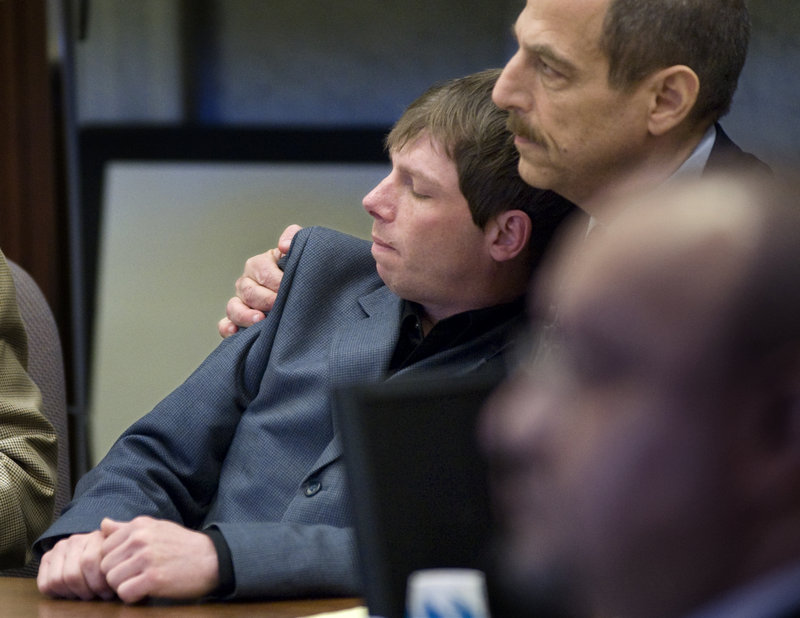NEW YORK – The Boy Scouts have labored for decades to curtail sexual abuse of Scouts by adult volunteers. But when their name was evoked in a lawsuit linked to the Penn State abuse scandal, the reference was not to problems — it was acknowledgment that the Scouts’ current prevention policies are considered state of the art.
While the local youth charity in the Penn State case has been accused of lax policies, experts in abuse prevention say most of the national organizations serving young people — such as the Boy Scouts of America, Big Brothers Big Sisters, the YMCA, and Boys & Girls Clubs of America — have performed commendably in drafting and enforcing tough anti-abuse policies even as they’re sometimes faced with wily and manipulative molesters.
“I’d give them all an A-plus,” said Portland State University psychologist Keith Kaufman, who has studied and treated child sex abuse victims.
If there’s a systemic problem, Kaufman and other experts say, it’s lack of data — from the organizations themselves and from law enforcement agencies — that could illustrate progress by youth groups. The Scouts, for example, said, “We simply do not track or have data that would help quantify trends.”
NO SECOND CHANCE
Nonetheless, several independent child-protection experts told The Associated Press that the Scouts — though buffeted in the past by many abuse-related lawsuits — are now considered a leader in combating sexual abuse.
“The Boy Scouts have the most advanced policies and training,” said ex-prosecutor Victor Vieth, who heads the National Child Protection Training Center in Minnesota. “With even slight violations, there’s no debate. Someone who transgresses one of these rules is moved out — you don’t need to give them a second chance.”
In the Penn State case, former assistant football coach Jerry Sandusky is charged with sexually abusing 10 boys over a 15-year period, including many engaged in a youth-oriented charity he founded called The Second Mile. Sandusky, who maintains his innocence, has acknowledged showering with boys — an interaction banned by the Boy Scouts and other major groups.
Attorneys for one of Sandusky’s alleged victims, in a lawsuit filed in November, said they intend to charge The Second Mile with failing to follow preventive policies used by the Scouts and other organizations, such as the “Two-Deep” rule that requires at least two adults to be present at all activities.
One of the lawyers handling that lawsuit, Jeffrey Fritz of Philadelphia, is the father of a Scout and was impressed that the handbook his son brought home included detailed child-protection information that parents are required to read and discuss with their children.
“It’s not just adopting the policies, it’s educating members, volunteers, parents about them,” Fritz said. “I applaud the Boy Scouts’ efforts in going so far as that.”
ALL STAFF MANDATED TO REPORT
Dating back to the 1920s, the Scouts have been keeping secret files about potential molesters — files it refuses to disclose on the grounds that they contain some unverified allegations and that informants expect confidentiality.
Prevention efforts have intensified in the past 30 years, with the Scouts prohibiting one-on-one adult-youth activities, mandating criminal background checks for all staff who work with youth, and including an insert for parents about child protection in the handbook issued to new Scouts.
Nonetheless, the Scouts’ public image took a blow in April 2010 when an Oregon jury ordered the organization to pay $19.9 million in damages to Kerry Lewis, who had been abused in the 1980s by an assistant scoutmaster in Portland. The jury decided that the Boy Scouts were negligent for allowing the abuser to associate with Lewis and other boys after admitting to a Scouts official in 1983 that he had molested 17 boys.
Within a few months of that judgment, the Scouts announced that all adult volunteers — now numbering 1.2 million — would be required to take child-protection training when they join the Scouts and repeat the training every two years.
The Scouts also created the full-time position of youth protection director, and filled it with Michael Johnson, a former Plano, Texas, police detective who is an authority on child abuse detection and prevention.
Last year, in one of his first major directives, Johnson stipulated that all adult Scout staff are mandated to report suspected child abuse to law enforcement authorities and Scout leaders, even if this would not be required by state law.
“That’s one of the things we’re most proud of,” Johnson said in an interview. “I don’t want our people wondering if they’re mandated reporters.”
Gary Schoener, a Minneapolis-based therapist and expert on sexual misconduct, testified at the Oregon trial that the Scouts could have been more proactive in the 1980s in using their secret files to warn about pedophiles.
Now, Schoener said, the Scouts’ prevention program is “considered somewhat the gold standard” — though he suggested that the training material could more clearly show how the Scouts learned from past problems.
“They need to shout loud and clear, ‘This has happened in the Boy Scouts — here are examples,’” Schoener said.
Send questions/comments to the editors.



Success. Please wait for the page to reload. If the page does not reload within 5 seconds, please refresh the page.
Enter your email and password to access comments.
Hi, to comment on stories you must . This profile is in addition to your subscription and website login.
Already have a commenting profile? .
Invalid username/password.
Please check your email to confirm and complete your registration.
Only subscribers are eligible to post comments. Please subscribe or login first for digital access. Here’s why.
Use the form below to reset your password. When you've submitted your account email, we will send an email with a reset code.